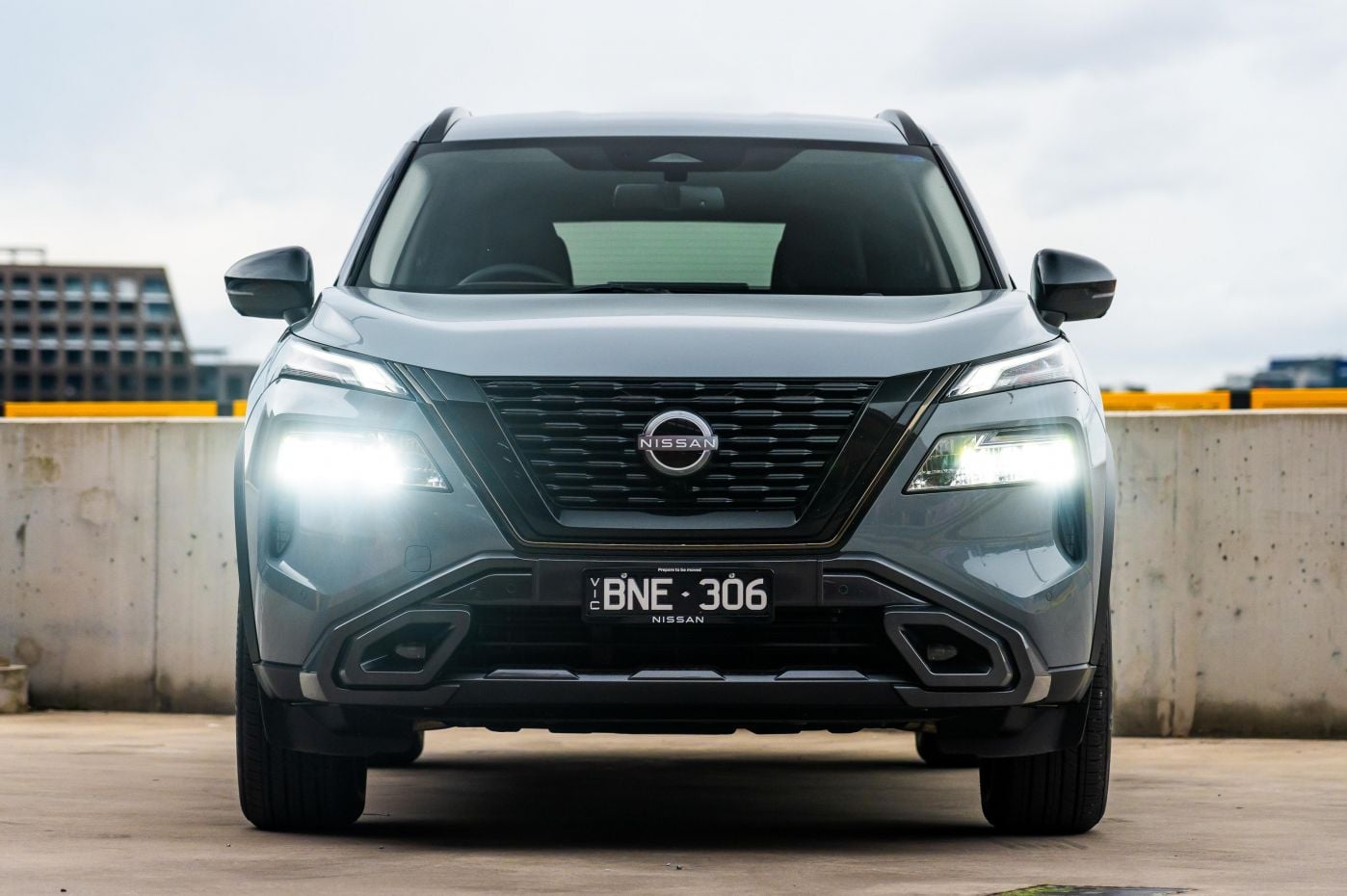

William Stopford
2026 Nissan X-Trail review
Pros
- Spacious, well-appointed cabin
- Long warranty
- Surprisingly peppy powertrain
Cons
- Ride comfort could be better
- Not the most exciting option
- Short servicing intervals
3 Months Ago
The Nissan X-Trail will enter 2025 with minor equipment enhancements at no additional cost, while the flagship model will see a modest price reduction.
Since the fourth-generation X-Trail launched in Australia in 2022, Nissan has made minimal changes, with prices remaining largely stable apart from a $500 increase in July 2024.
For 2025, the entry-level Nissan X-Trail ST now includes approach unlocking and walkaway locking as its new feature.
Higher-spec X-Trail ST variants receive more extensive upgrades. They feature a 12.3-inch infotainment touchscreen, wireless smartphone mirroring and charging, and satellite navigation. Previously, these features were exclusive to the N-Trek with its rugged design and the Ti variant, which now also gains a hands-free power tailgate from the top-tier Ti-L.
The flagship X-Trail Ti-L benefits only from enhanced proximity entry and wireless Android Auto, but the e-Power version's price has been reduced by $800.
These equipment upgrades come as Nissan aims to climb the sales charts in the highly competitive mid-size SUV segment, which is dominated by the Toyota RAV4 and includes rivals such as the Mitsubishi Outlander, Mazda CX-5, Kia Sportage, and Hyundai Tucson.
We believe the 2025 X-Trail will be in good supply for the foreseeable future.
Retail Price
Transmission
1-speed auto or Auto (CVT)
Driven Wheels
4x4 or Front
Fuel Type
Unleaded or Premium Unleaded
Body Types
SUV
Powertrain Type
Combustion or Hybrid
View 27 images
Retail Price
Transmission
1-speed auto or Auto (CVT)
Driven Wheels
4x4 or Front
Fuel Type
Unleaded or Premium Unleaded
Body Types
SUV
Powertrain Type
Combustion or Hybrid
Very Good
5 Reviews
CarExpert does the hard work to get you the best price. No negotiating, no hidden costs, just expert help and real savings on your next new car.
Engine specs, power, and efficiency
Drive Feel: Steering, Suspension, Ride Quality
Strength, stability, and off-road performance
Design, size, and presence on the road
Comfort, tech, and convenience inside
Infotainment, connectivity, and smart features
Protection, prevention, and alerts
Coverage, maintenance, and peace of mind
The Nissan X-Trail comes in a variety of variants with the cheapest being ST and the most expensive being Ti-L.


William Stopford
3 Months Ago
Quickly see how the Nissan X-Trail stacks up against its competition.
Select any benchmark to see more details.
Where expert car reviews meet expert car buying – CarExpert gives you trusted advice, personalised service and real savings on your next new car.
| Specification | Measurement |
|---|---|
| Overall Length | 4,680 mm |
| Overall Width | 1,840 mm |
| Overall Width (Inc Mirror) | 2,065 mm |
| Overall Height | 1,725 mm |
| Wheelbase | 2,705 mm |
| Turning Circle | 11,100 mm |
| Load Capacity | 500 mm |
Dimensions in this table show the minimum and maximum values of all variants for this vehicle.
Our Nissan X-Trail Exterior and Dimensions Page has every measurement you need to know exactly how this vehicle will fit your driving, garage, or work needs.
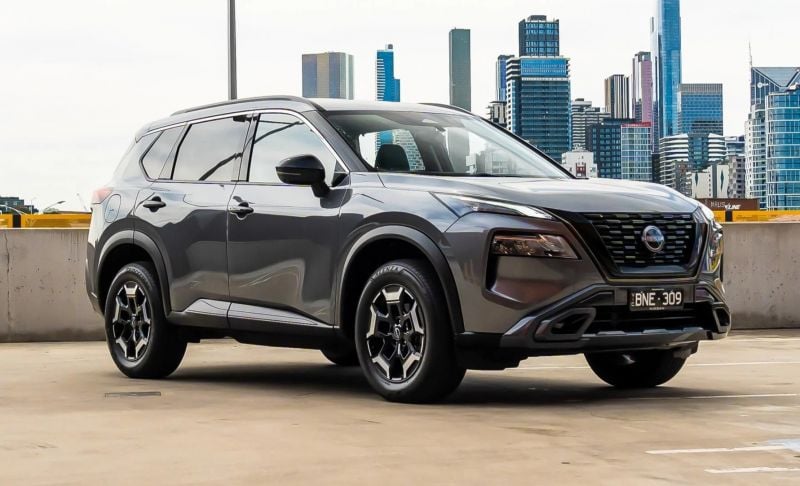

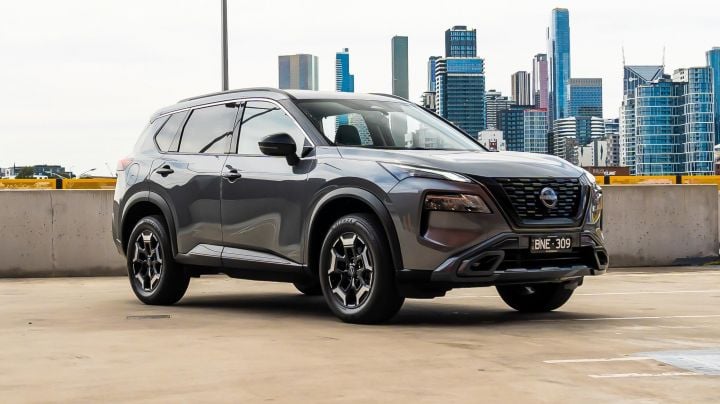
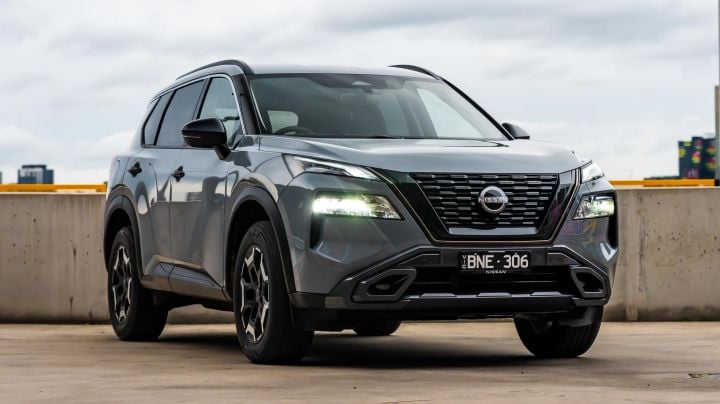
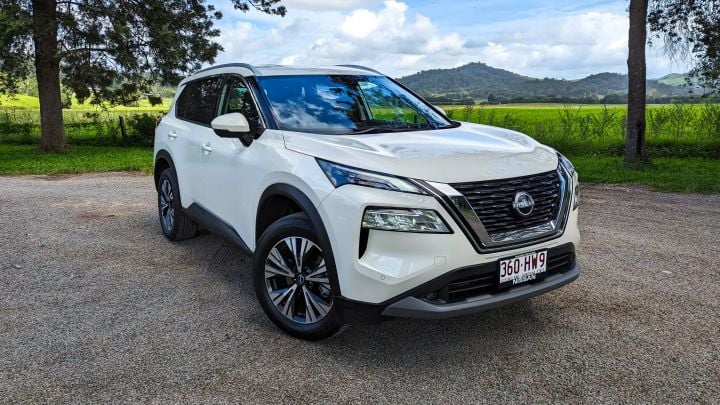
Nissan X-Trail
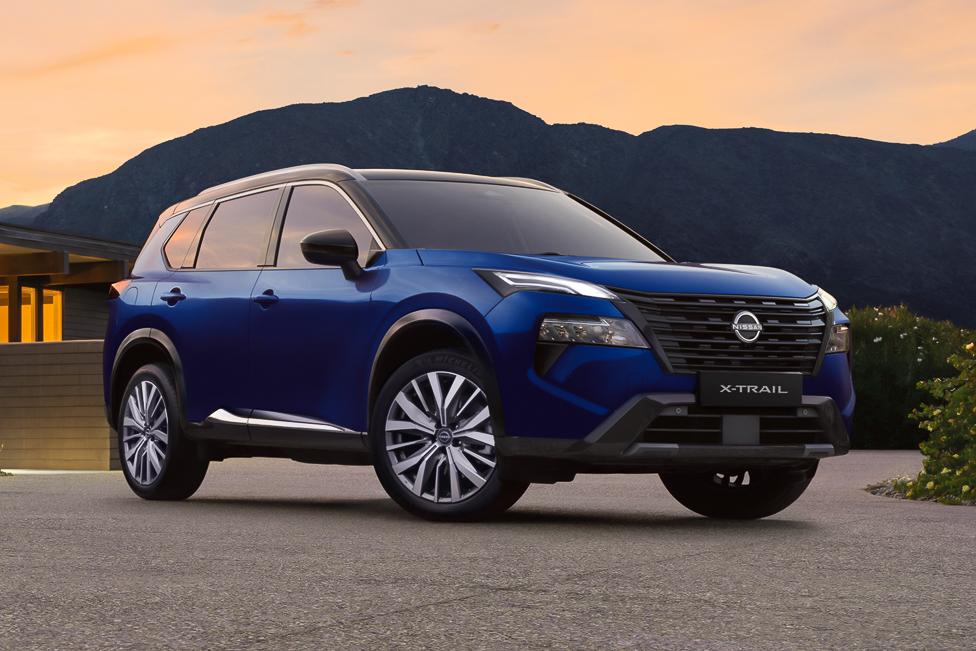

James Wong
2 Months Ago
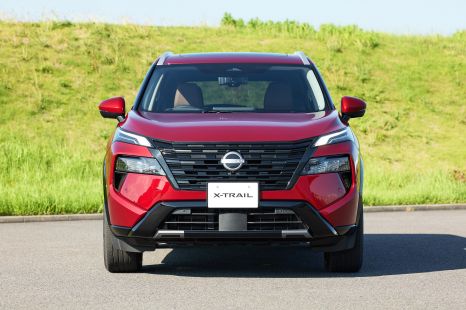

Derek Fung
3 Months Ago
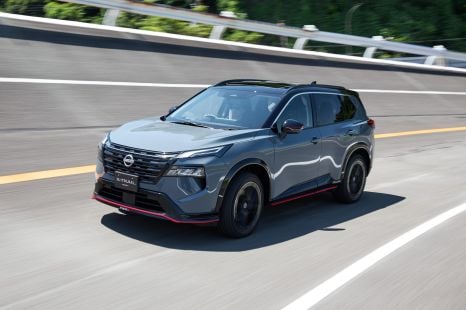

William Stopford
4 Months Ago
Where expert car reviews meet expert car buying – CarExpert gives you trusted advice, personalised service and real savings on your next new car.
Nissan X-Trail
The cheapest Nissan X-Trail is the ST that starts from $38,140.
See all Nissan X-Trail PricingThe most expensive Nissan X-Trail is the Ti-L that starts from $58,215.
See all Nissan X-Trail PricingThe best towing capacity of a Nissan X-Trail is 2000 kg offered by the following variants: ST, St-L, Ti and Ti-L.
See all Nissan X-Trail towing capacityThe largest Nissan X-Trail is the ST which measures 1840mm wide, 4680mm in length and sits 1725mm tall.
The most powerful Nissan X-Trail is the St-L which has 157kW of power from its 1.5L Turbo engine.
The Nissan X-Trail is built in Japan and shipped to Australia.
The heaviest Nissan X-Trail is the St-L which weighs 2380 kg (kerb weight).
The Nissan X-Trail may use different fuel/energy types based on the variant which includes Premium Unleaded or Unleaded.
# Based on VFACTS and EVC data
* Average savings based on recent CarExpert customer transactions. Actual savings will vary depending on vehicle make and model, location, stock availability, and other factors.
† Displayed prices exclude on-road costs such as delivery charges, registration fees, number plates, insurance and applicable road taxes. These prices are subject to change without notice and may not reflect current market pricing or dealer offers.
 Automotive Vehicle Spec Data & 4K images Powered by JATO Dynamics Ltd
Automotive Vehicle Spec Data & 4K images Powered by JATO Dynamics Ltd